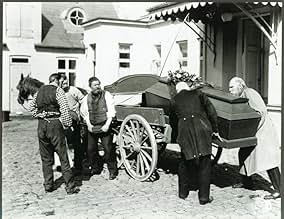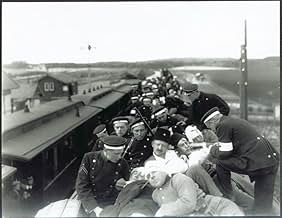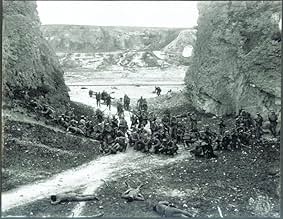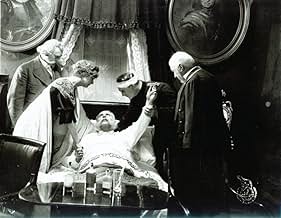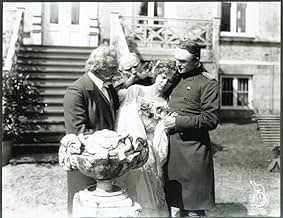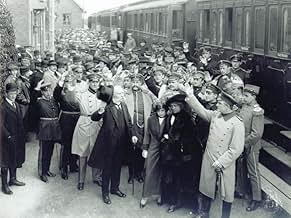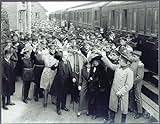"Ned Med Vaabnene!" ( Lay Down Your Arms! "(1915) is a great example of the excellence that Nordic silent films achieved during the 10s of the last century. The Danish "Nordisk Film Company" in particular developed a well deserved reputation outside Denmark for artistic supremacy. Unfortunately, that changed drastically at the end of WWI due to political issues and business troubles.
One of the most reputable pioneer Danish film directors who accordingly added to the prestige of "Nordisk" was Herr Holger-Madsen, who in "Ned Med Vaabnene!" displays an astonishing command of the camera as well as innovative techniques that were remarkable for the time and can even shock modernen audiences.
The film is an anti-war oeuvre, a pacifist film based on the eponymous novel written by the Nobel-prize winner Frau Bertha von Suttner, who appears at the beginning of the film. In addition to being a countess, she was also a leading person in the pacifist movement of the last century so consequently," Ned Med Vaabnene!" tells the story of bourgeois war widow Frau Martha Althaus ( Frau Augusta Blad ) who marries again with an officer (Herr Olaf Fonss ) and comes to suffer with her loved one the disasters and consequences of war.
As this German count said before, "Ned Med Vaabnene!" is a brilliant film distinguished by inventive camera-work and great technique but its anti-war manifesto caused distribution problems outside of Denmark; when the film was released Europeans were busy massacring each other in WWI and did not welcome propaganda for peace.
The innovative Holger-Madsen camera-work and the special effects are often striking and unusual; for example, the scene wherein the camera shoots from a train. Herr Holger-Madsen makes the action particularly dramatic in his frequent use of medium shots. The battle scenes are particularly powerful. It is certainly a big budget picture that uses it financial resources well. The art direction is also brilliant and the indoor settings (depicting Frau Martha Althaus' bourgeois life) are as effective as the exterior work. Each in their way captures the turmoil of wartime in the city.
It should be noted that Frau Bertha von Suttner's novel was adapted for the silent screen by the great Danish film director Herr Carl Theodor Dreyer who certainly captures the antiwar purposes of the novel in depicting the sorrow and pain of war through the focus on Frau Althaus' family and friends.
Certainly the combination of Herr Holger-Madesen's direction, Carl Dreyer's script and the restrained performance of Olaf Fonss! makes this "Nordisk" film production a superb piece of early silent cinema.
And now, if you'll allow me, I must temporarily take my leave because this German Count must sign an armistice with one of his rich and fat heiresses.
Herr Graf Ferdinand Von Galitzien http://ferdinandvongalitzien.blogspot.com

